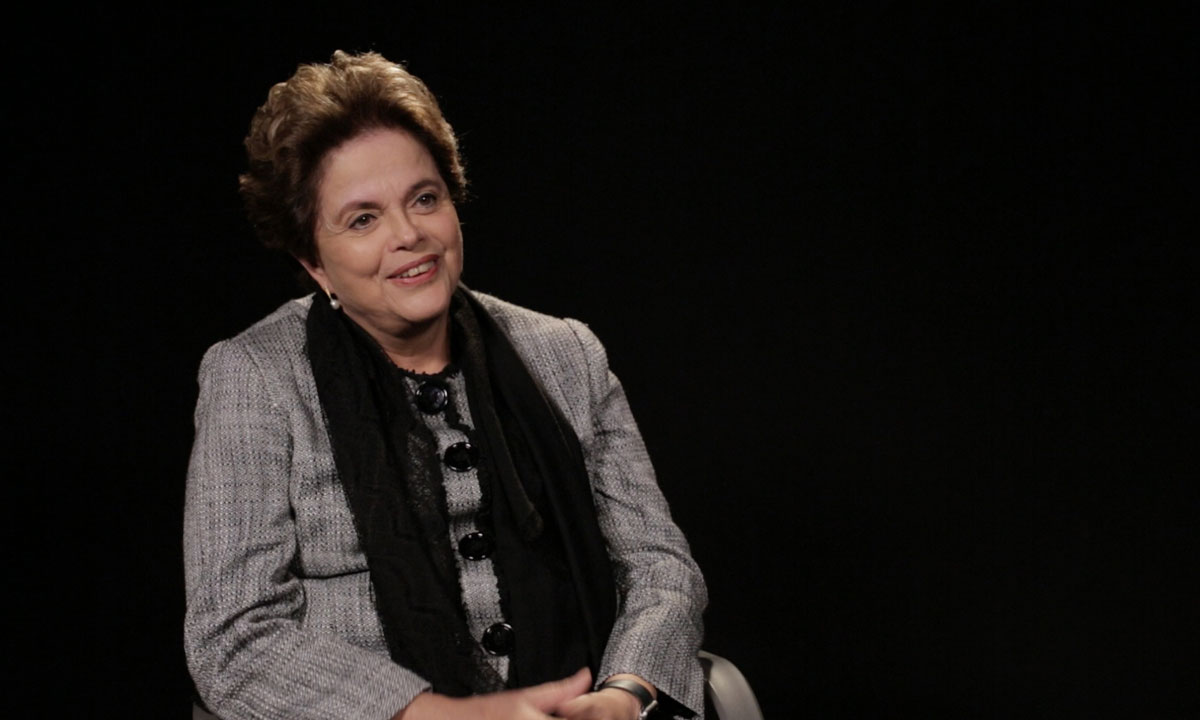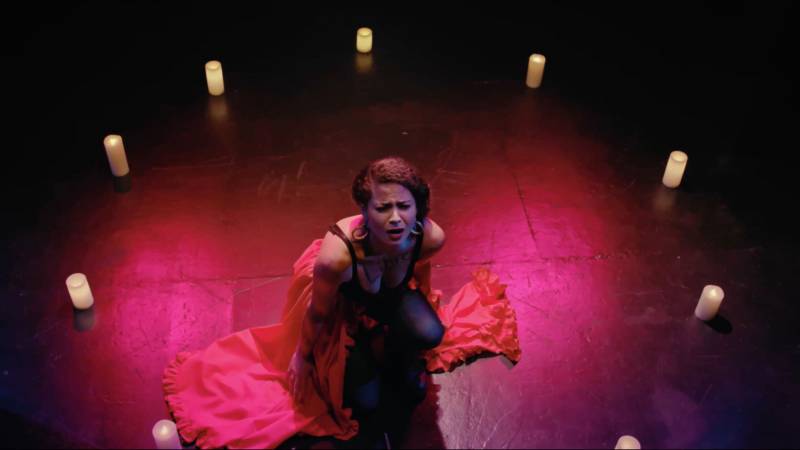It takes a certain amount of boldness, along with the requisite talent, to create a musical about Puerto Rico in the grieving, furious wake of Hurricane Maria. There are so many ways it can go wrong, from stolid earnestness to sticky sentimentality to (worst of all) trivialization of the victims and survivors. Calle de la Resistance (Oct. 1 at the Roxie), the rousing opening night film of the 13th Cine+Mas San Francisco Latino Film Festival (online through Oct. 17 with additional in-person screenings at the Roxie), proves to be an impressive and poignant work despite a few moments where it trips from drama to dogma (i.e., sloganeering).
Milton Carrero’s book and music, directed for the screen by Denise Blasor and performed on an L.A. theater stage by an emotionally invested and gifted ensemble, casts the devastating storm as the catalyst for protests against longstanding local corruption and U.S. colonialism. Most of the characters are in their 20s, which gives the story a charged sense of the future being created before our eyes.

Opening night films are usually chosen for their innocuousness, but Calle de la Resistencia embodies the pithy themes and urgent spirit—the pursuit of liberation and self-determination—of the remarkably expansive SF Latino Film Festival program, which encompasses some 100 films of varying lengths.
The 60-something actress at the center of Simon Franco’s quirky Charlotte hits the Argentine highway in an RV with her repressed assistant, cruising to Paraguay to ambush the director with whom she found fame and fortune many years ago. Played by the fearless grande dame and Buñuel bombshell Ángela Molina with abundant self-awareness and ample wit, Charlotte is a jaded prisoner of the past who comes to realize she needs to embrace a new path. But that’s what road movies are always about, right?
Charlotte is a pastel mashup of a droll indie, a star vehicle anchored by a late-career powerhouse and a satire of advertising. It works in fits and starts, trafficking in weird digressions for weirdness’ sake, but Molina is a show by herself in this U.S. premiere.

A very different group of women of Charlotte’s generation, imprisoned Brazilian political activists of the late ’60s and early ’70s, command the screen in the experiential documentary Maiden’s Tower. Director Susanna Lira isn’t focused on educating us about the military dictatorship that came to power in 1964 and ran Brazil for two decades, or the specific goals of the young female revolutionaries (most of them students) who risked everything for their idealistic beliefs. Nor, oddly enough, is the filmmaker interested in the scars these women carry.


